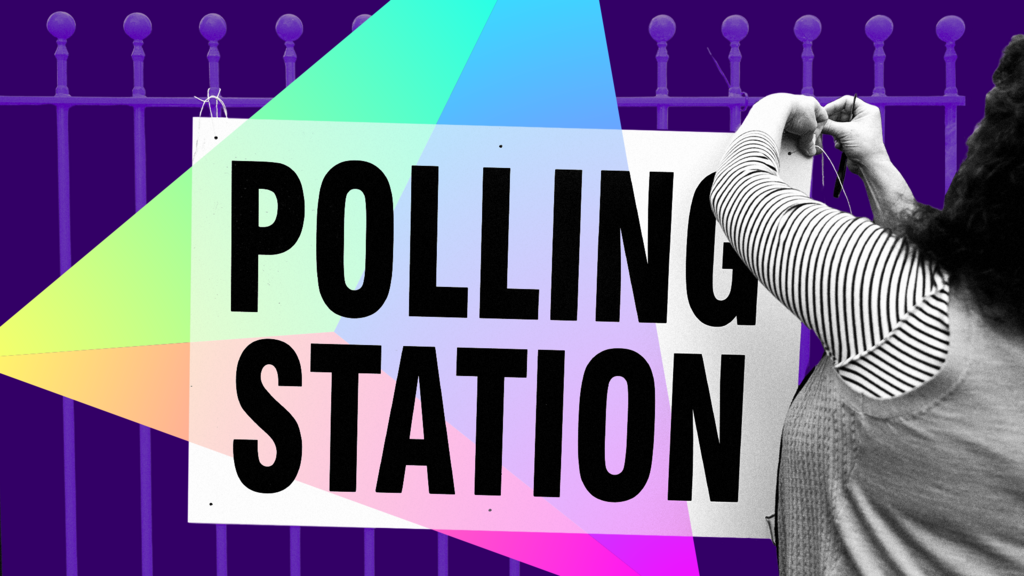On Thursday 1 May, select regions across England will head to the polls to elect new councillors and mayors.
These local elections mark the first since the general election in July 2024.
Voters casting their ballots in person are required to present photo identification.
Elections will be held in 23 local councils throughout England.
In the following councils, all seats will be contested:
Six mayoral elections are also taking place: in the West of England, Cambridgeshire and Peterborough, North Tyneside, Doncaster, and – for the first time – Greater Lincolnshire and Hull and East Yorkshire.
Additionally, council elections are underway in the Isles of Scilly.
Voters in the Runcorn and Helsby constituency will also choose a new MP on 1 May.
The previous Labour MP, Mike Amesbury, stepped down following his conviction for assaulting a constituent.
Routine elections are not being conducted in Wales, Scotland, or Northern Ireland.
Electors registered on the roll have three options for voting:
Eligible criteria for voting in local elections include:
In some locations, voters may be issued multiple ballot papers reflecting the various elections occurring simultaneously.
In council elections, votes are typically allocated per available seat within a ward or division, although some wards may feature multiple seats.
The candidate(s) with the highest number of votes are declared elected. If three seats are open, the top three vote-getters are returned.
Mayoral races employ the first-past-the-post system, as used in general elections.
EU citizens are ineligible to vote in the Runcorn and Helsby parliamentary by-election.
Deadlines to register, request a postal vote, or apply for a proxy vote have now passed.
However, those already registered who are unexpectedly unable to vote in person may apply for an emergency proxy vote up until 17:00 on polling day.
The individual nominated as proxy must themselves be listed on the electoral register.
Photo identification is mandatory for in-person voting, although the polling card is not required.
There are over 20 accepted forms of photo ID, including passports, driving licenses, and, from 1 May, Armed Forces Veteran Cards.
Expired forms of identification are acceptable if the voter remains recognisable in the photograph.
Voters lacking appropriate identification or whose appearance has significantly changed can apply for a free voter authority certificate.
The deadline to secure a certificate for the May polls has expired.
It is prohibited to take selfies or photographs inside polling stations.
Except for assistance dogs, animals are typically not permitted inside polling stations, subject to local authority discretion.
Children may accompany voters, though they may not assist with completing the ballot.
While writing implements are provided, voters may use their own pen or pencil if preferred.
Wearing political clothing is permitted, but discussion of candidates or political matters inside polling stations is not allowed.
Councils are responsible for a range of local services, including:
Matt Chorley: Why local elections, while sometimes overlooked, are crucial
Explainer: Council tax changes and what they mean for residents
Six mayoral positions are set to be filled on 1 May:
A single-authority mayor leads the council and oversees delivery of local services.
Metro mayors serve as regional heads, chairing combined authorities – partnerships of multiple local councils.
They are responsible for economic development strategies and have powers in areas such as housing and transportation.
Of the councils voting, Northumberland is anticipated to announce its results overnight, while most others will begin vote counts later on Friday morning.
Mayoral outcomes for North Tyneside, West of England, Greater Lincolnshire and Doncaster are also expected by Friday morning.
Results from the remaining councils and mayoral elections in Cambridgeshire and Peterborough, and Hull and East Yorkshire, are likely by Friday evening.
The timing of the Runcorn and Helsby by-election result remains uncertain.
During the 2024 general election, the result was made public at approximately 02:25 am.
Comprehensive BBC election guidelines are in place, outlining impartial coverage requirements for polling day.
On polling day, UK broadcasters, including the BBC, are prohibited from reporting campaign details or political issues related to the elections on television, radio, or online until after polls close at 22:00.
During voting hours, publishing exit poll results is a criminal offence.
On election day, news coverage is generally limited to factual, non-partisan updates such as candidate appearances, weather, or information on the voting process.
After polls close at 22:00, these election reporting restrictions lift.
Nonetheless, the BBC remains committed to impartial reporting in accordance with both Ofcom standards and its Editorial Guidelines.
Voters across England will elect hundreds of councillors, six mayors, and one MP in the forthcoming polls.
Polling dates for forthcoming elections will be communicated, and all postal voters must submit updated applications.
BBC News will provide comprehensive updates and coverage across all its platforms throughout the election period.
The elections comprise 23 council polls, six mayoral contests, and a by-election in Runcorn and Helsby.
While some advocate 20mph zones as a safety improvement, others question whether their implementation represents good value for public funds.

